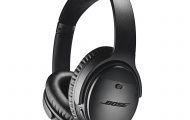A “netbook” computer is a low-cost portable computer the same size as a classic “Day-Planner” or “Filofax” personal organizer but is primarily designed to be used for basic computing tasks like Web browsing, e-mail work or basic word-processing. Typically they will have up to 1Gb on the RAM and up to 80Gb on a solid-state disk or 120Gb on a mechanical hard disk. They will use a processor like the Intel Aero that is pitched at ultra-portable computer work by being designed to offer basic processing power without much energy being used. . The display won’t have the kind of performance that you would expect for intense game play or video editing but would be suitable for most tasks including playing casual games. Typically, they will have built-in wireless networking support primarily for Internet access. The operating system they will often run with is either a customised Linux build or the latest “out-of-box” build of Windows XP. They usually don’t come with any sort of “load device” like an optical disk drive because you are expected to work with the software that is supplied as part of the unit or download extra software from the Internet to suit your needs. If you do need auxiliary storage or a “load device”, they may come with an SD card drive or you plug in a USB Mass-Storage compliant device like a memory key or external optical drive.
This class of computer was born out of the “One Laptop Per Child” project where the idea was to provide computer and Internet access to children in marginalised Third World countries. They have also gained appeal in Western countries as a small secondary computer for e-mail and Web use or as an entry-level computer for the likes of students. One area that they can come in handy in the home is as a “Web terminal” that is used in the kitchen or lounge for casual Web browsing. This would be set up in a similar manner to what I have suggested in a previous article about how a secondhand computer could be set up as a kitchen computer.
For most people, it may be preferable to work with Windows XP-based netbooks rather than the scaled-down Linux units. This will provide a lot more operating room through the unit’s working life. If you do a lot of work with Linux, I would suggest that you go for the high-end Linux units and know how to keep their software up to date. This may involve “rolling in” the latest version of a standard distribution like Redhat or OpenSUSE with all its functionality. Some Linux “geeks” may be interested in using a “netbook” for modelling programs that they are developing or building the “perfect” distribution.
I would still certainly say that these “netbooks” still have their place in the computer market in all market conditions.

